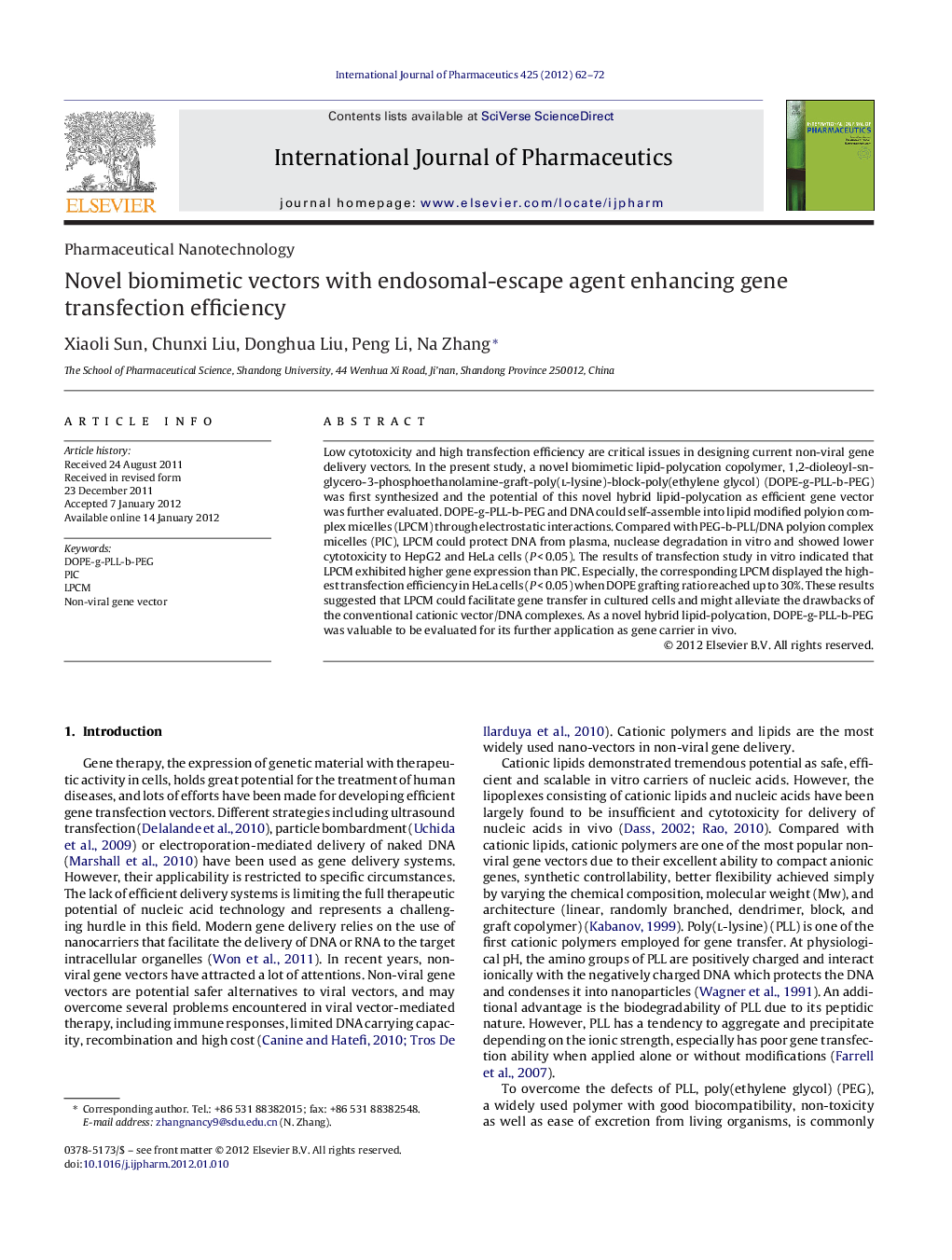| Article ID | Journal | Published Year | Pages | File Type |
|---|---|---|---|---|
| 2503071 | International Journal of Pharmaceutics | 2012 | 11 Pages |
Low cytotoxicity and high transfection efficiency are critical issues in designing current non-viral gene delivery vectors. In the present study, a novel biomimetic lipid-polycation copolymer, 1,2-dioleoyl-sn-glycero-3-phosphoethanolamine-graft-poly(l-lysine)-block-poly(ethylene glycol) (DOPE-g-PLL-b-PEG) was first synthesized and the potential of this novel hybrid lipid-polycation as efficient gene vector was further evaluated. DOPE-g-PLL-b-PEG and DNA could self-assemble into lipid modified polyion complex micelles (LPCM) through electrostatic interactions. Compared with PEG-b-PLL/DNA polyion complex micelles (PIC), LPCM could protect DNA from plasma, nuclease degradation in vitro and showed lower cytotoxicity to HepG2 and HeLa cells (P < 0.05). The results of transfection study in vitro indicated that LPCM exhibited higher gene expression than PIC. Especially, the corresponding LPCM displayed the highest transfection efficiency in HeLa cells (P < 0.05) when DOPE grafting ratio reached up to 30%. These results suggested that LPCM could facilitate gene transfer in cultured cells and might alleviate the drawbacks of the conventional cationic vector/DNA complexes. As a novel hybrid lipid-polycation, DOPE-g-PLL-b-PEG was valuable to be evaluated for its further application as gene carrier in vivo.
Graphical abstractFigure optionsDownload full-size imageDownload as PowerPoint slide
